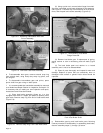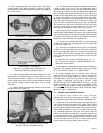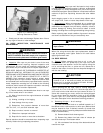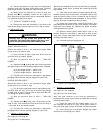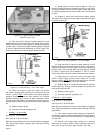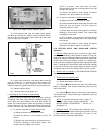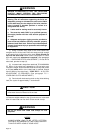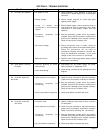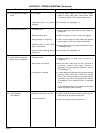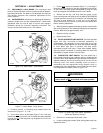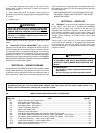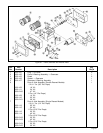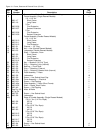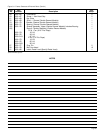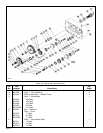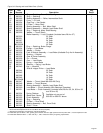
Page 20
SECTION Vl - TROUBLE SHOOTING (Continued)
Trouble Probable Cause Remedy
6-5. Hoist Will Not Lift Rated
Load.
6-6. Hoist Motor Overheats.
6-7. Load Drifts Excessively
When Hoist Is Stopped.
6-8. Hoist Operates
Intermittently
a. See that power supply current is same voltage
Iisted on motor data plate. Check hoist motor
connections. Check size of power supply lines.
b. See Section VII, paragraph 7-5.
a. Reduce loading to rated load of hoist, shown on
nameplate.
b. Reduce frequency of lifts or amount of jogging.
c. Check current rating on motor data plate against
power supply. Check hoist motor connections.
d. Disassemble hoist and inspect for defective, worn
or damaged parts.
e. See Section VII, paragraph 7-5.
a. Reduce loading to rated load, as shown on
nameplate.
b. With No Load, check hoist for drift. If drifting is
excessive, inspect motor brake (Section V,
paragraph 5-5) and adjust as outlined in Section
VII, paragraph 7-2.
c. (1) After determining that the motor brake is working
properly, attach rated load to hook and operate
hoist. If the load accelerates during lowering, the
load brake is not functioning properly. See Section
V, paragraph 5-6 for replacing worn or damaged
parts.
(2) If load brake checks O.K., magnetic motor brake
needs adjustment (see b. above).
a. Check collectors for free movement of spring arm,
weak spring or electrical connections.
b. Check all wiring for loose connections.
a. Low voltage
b. Overload Clutch not properly
adjusted.
a. Excessive load.
b. Excessive duty-cycle.
c. Wrong voltage or frequency.
d. Defective motor or worn bear-
ings in hoist frame.
e. Overload Clutch slipping without
lifting load.
a. Excessive load.
b. Motor brake not holding.
c. Load brake not holding.
a. Collectors make poor contact.
b. Loose connections.



